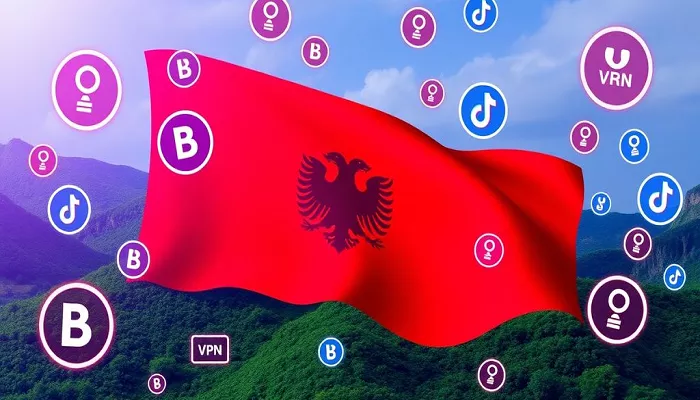The Albanian government has officially banned TikTok, sparking a dramatic rise in VPN usage as citizens seek ways to bypass restrictions. According to ProtonVPN, there has been a staggering 1,200% increase in users attempting to regain access to the social media platform. The number continues to grow, reflecting widespread efforts to circumvent the ban.
Why Albania Banned TikTok
The government cited concerns over data privacy and security as the main reasons for the ban. TikTok, owned by the Chinese company ByteDance, has faced global scrutiny over how it handles user data. Albanian authorities expressed fears that foreign apps collecting personal information could pose a security risk. In response, they decided to block the platform nationwide.
Public Reaction and Freedom of Expression Concerns
The decision has sparked a heated debate. Many Albanians argue that the ban restricts their freedom of expression and access to information. Social media users have voiced their frustration, saying the move limits their ability to communicate and share content. Critics worry that this could set a precedent for further censorship in the country.
Mass Adoption of VPNs
Following the ban, many Albanians have turned to Virtual Private Networks (VPNs) to continue using TikTok and other restricted platforms. ProtonVPN’s data shows:
- A 1,200% increase in new users since the ban was introduced.
- Continued growth, indicating more people are looking for ways to bypass the restrictions.
- A wider user base, with even non-tech-savvy individuals learning to use VPNs.
Government’s Stance and Potential Future Actions
Albanian officials have defended their decision, emphasizing that the ban is necessary to protect national security and safeguard citizens’ personal data. However, digital rights advocates warn that it could lead to tighter internet controls in the future.
As VPN usage continues to rise, it remains uncertain whether the government will introduce further internet restrictions or reconsider its stance on TikTok. The evolving situation raises important questions about the balance between security and digital freedom in Albania.

